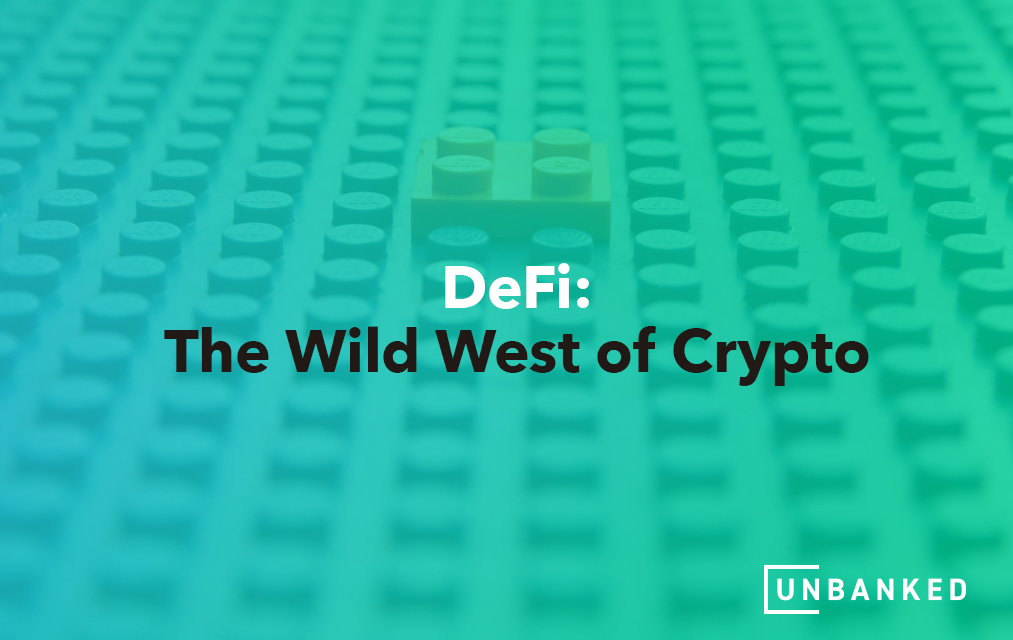DeFi (Decentralized Finance) is a broad term for several financial applications on public blockchains, particularly Ethereum. DeFi eliminates the need for intermediaries, like banks and other financial institutions, allowing peer-to-peer transactions. On DeFi platforms, users can buy, sell, trade, earn interests and borrow digital assets (essentially, the functions of a bank but with digital currency) without the assistance of a third party. The primary purpose of DeFi is to create a more open, free, and fair financial market system that anyone with an internet connection can access. There are many advantages of DeFi platforms like anonymity (users do not need to provide their details on the platform), flexibility (users can make transactions anywhere without paying a high transaction fee), and speed (transactions are fast and seamless). Besides that, users do not need anything to open an account; instead, they can simply access DeFi platforms by creating their wallets.
Most of the DeFi platforms are built on Ethereum network, the world’s second-largest cryptocurrency with wider applications than other cryptocurrencies like bitcoin. This is because of Ethereum’s smart contracting abilities. There are several applications of DeFi:
- Decentralized exchanges: These online platforms allow users to exchange their currencies for other currencies; for example, one can exchange one’s bitcoin for the US dollar. These platforms connect users directly with each other, thus, eliminating the need for intermediaries.
- Lending Platforms: These platforms connect borrowers and lenders of cryptocurrencies. They allow lenders to earn interest on their cryptocurrencies. The interest rate is usually decided by the said platform depending on the demand of that particular cryptocurrency. Often, borrowers have to provide collateral to take loans. Mostly this collateral is ether because it powers the ethereum network.
- Stablecoins: Stablecoins are another form of DeFi. They are created to stabilize cryptocurrencies, as the name suggests. We all know that cryptocurrencies are highly volatile digital assets susceptible to market fluctuations. To overcome this, stablecoins are pegged to the value of the US dollar to minimize price fluctuations.
- Prediction Market: One of the applications of DeFi is the prediction market. Here, users can place a bet on the outcome of an event, for example, “Will Australia win the 2021 World Cup?”. The main objective of users is to earn money by predicting the correct answer. However, sometimes these prediction markets can give better predictions than polls or other conventional methods.
Why Are Banks Worried?
The exponential growth of DeFi platforms has left US regulators worried. This is because DeFi promises to deliver bank-like functions (loans, saving accounts, interests) without providing users the kind of regulated protections banks offer. Regulators are concerned that these DeFi platforms are not as decentralized as they are advertised to be. They claim that a few big agents or players dominate deFi platforms, and thus, they do not always function in the best interest of other users. Recently, the Bank of International Settlements, has expressed concerns about the unregulated nature of DeFi. It has suggested that DeFi platforms should be regulated to protect investors and improve the market growth.
Another reason for concern amongst regulators is many attacks and frauds happening on DeFi platforms. According to the recent data, around $10 billion was lost in crypto thefts and scams just in the year 2021. Besides this, regulators have also said that the growth of the DeFi market could pose financial stability concerns in the country.
The Wild West
DeFi is called the Wild West of crypto as it aims to bring traditional financial applications on the blockchain. In theory, the idea is quite fascinating as anyone on the DeFi platform can lend and borrow digital currencies at good interest rates without the involvement of middlemen or complicated paperwork. Regulators, on several occasions, have pointed out that a meaningful growth of DeFi platforms is not possible without appropriate regulations.
As the interest in the crypto industry grows, and investors increase, the need for investor protection becomes more prominent. Unless these investors are adequately protected, the crypto industry will remain unstable. The US regulators have already started adopting a strict approach. They did not allow Coinbase to launch an interest-savings product because they felt that it was similar to securities. As a result, Coinbase dropped its plans to launch it. They have also introduced the infrastructure bill, which defines brokers and clarifies the tax implications for transactions in digital currencies.
Lately, the criticism that DeFi platforms are not decentralized grabbed headlines. In October 2021, the Financial Action Task Force revised its guidelines on cryptocurrencies asking countries to identify the powerful individuals who exert significant influence over DeFi platforms. This advisory is aimed to target the founders of specific DeFi startup programs.
Regulators are concerned that the lack of effective control, surveillance, and regulatory oversight creates the risk of fraud, tax evasions, money laundering, and other criminal activities. DeFi platforms facilitate financial transactions but do not offer any of the protections to their investors.
The Bottom Line
With the proliferation of DeFi platforms, more and more people have become interested in utilizing the benefits of what decentralized finance has to offer. And with that, governments are taking cryptocurrencies and DeFi platforms more seriously and taking steps to regulate them. People have become victims of several scams and frauds rampant on such platforms. But with the steps towards greater regulation and protection of investors and stakeholders of DeFi platforms, the legitimization of cryptocurrencies and decentralized finance will increase correspondingly. Regulators know about the benefits of decentralized finance, but they fear the scams and frauds that have made people bankrupt. Besides that, the platform’s potential to harbor financial crimes has also forced regulators to take stricter measures.
At Unbanked, we believe that cryptocurrencies can be a pathway to financial control and freedom. This is, however, not possible without appropriate regulations. With the enormous growth of decentralized finance and new cryptocurrencies coming every day, investors need to be protected. To know more about investing in crypto and DeFi platforms, read our blog.





